Four years after walking out of Essendon, Mark Bomber Thompson says he no longer watches footy and has no desire to. He believes the AFL administration lost touch with clubs and players at the turn of the century. In part IV he explains that for him there’s no chance of a return.
“The AFL actually didn’t really care about individual clubs that much and that’s exactly what their purpose was - to service the clubs, to put games on and administer the game,” Thompson says of his days as senior coach at Geelong.
“But they had their business plans and their long-term goals and short-term goals. I thought when they put two new teams into the competition in such short succession it was the wrong thing to do.
“It put such a drain on talent. There was always going to be another team in Sydney and in Queensland, but to do it so close together was an enormous strain and too hard on some of the clubs that were already struggling and had been down the bottom of the ladder and missed the opportunity to get those picks you were probably deserving.
“That was a big hit on a lot of clubs.”
Thompson said the AFL commission and the league’s powerful executive were rarely sighted at clubland.
“You’d never see them at club level. You’d maybe see them once a year,” Thompson says.
“If I was running the competition, I would actually try to be out at clubs and checking up that things were on track instead of coming up in a years’ time and the club has lost $5 million or they’ve got no players or the recruiting and list management is up the shit.
“They can see so much from other clubs that they can actually give some advice if a club looks like it’s going to hit trouble.”
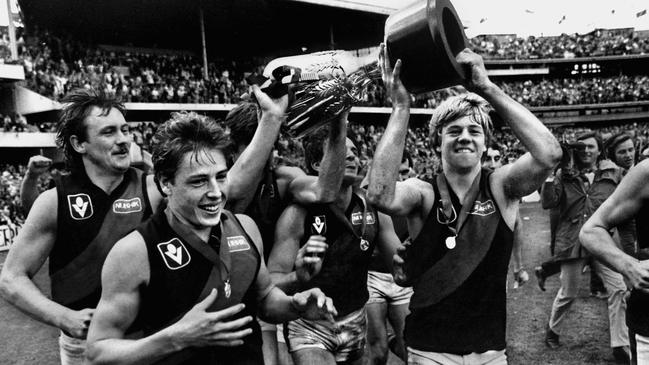
Four years after walking out of Essendon, Thompson says he no longer watches footy and has no desire to.
“I have no interest in the game. I’m happy not to watch it. It used to take up a lot of my time. It used to just absorb all of my time. I don’t know, I just feel like I’m educating myself a bit,” he says.
“It’s just not in my life at the moment because I’m doing other things and I’m finding them pretty good to do. I actually feel like I’m learning a bit about the world.”
But mention Geelong’s glorious premiership run of 2007, 2009 and 2011 and Thompson’s eyes light up.
It was a powerhouse team built in his own mould; a run and gun machine that scored heavily off the back of fierce defensive pressure.
Names including Ablett, Selwood, Bartel, Chapman, Stevie J, Enright, Kelly and Ling roll off the tongue as he recounts his favourite memories.
Pushed to nominate a favourite, Thompson doesn’t hesitate.
“Ah. Matty Scarlett. He was the man,” he fires back with a smile.
One day, he says, he might go back to help out in local footy, but for now Thompson is moving on in his new life working with timber and reuniting with friends and family.
“I’m back and I’m feeling good about myself - I’ve just got to sell a few tables,” he says.
READ PART IV OF HIS TELL-ALL BELOW
MW: Do you genuinely not like the game anymore, Bomber?
MT: I have no interest in the game. I’m happy not to watch it. It used to take up a lot of my time. It used to just absorb all of my time.
I don’t know, I just feel like I’m educating myself a bit.
MW: Why do you think you were such a good coach?
MT: I had a good coach (Kevin Sheedy). I had good players around me (at Essendon), that played a good brand of footy and I was successful. So I knew what success was.
I had great role models. (Tim) Watson and Terry Daniher and Simon Madden. Vander Haar wasn’t a very good role model (laughs).
He was in one sense, socially. Denis Pagan. David Wheadon.
Why was I a good coach? I started my own business when I was 21 and coaching and managing is teaching and that’s exactly what I was doing at work in my own business.
I used to love getting a young person and training them up to do the job the way you wanted it done rather than having someone else’s training because then you’d be at odds with them, because they were doing it a different way.
We always had the best success when we recruited and developed our own people - and that’s what I did at Geelong. That’s what Essendon did (under Sheedy).
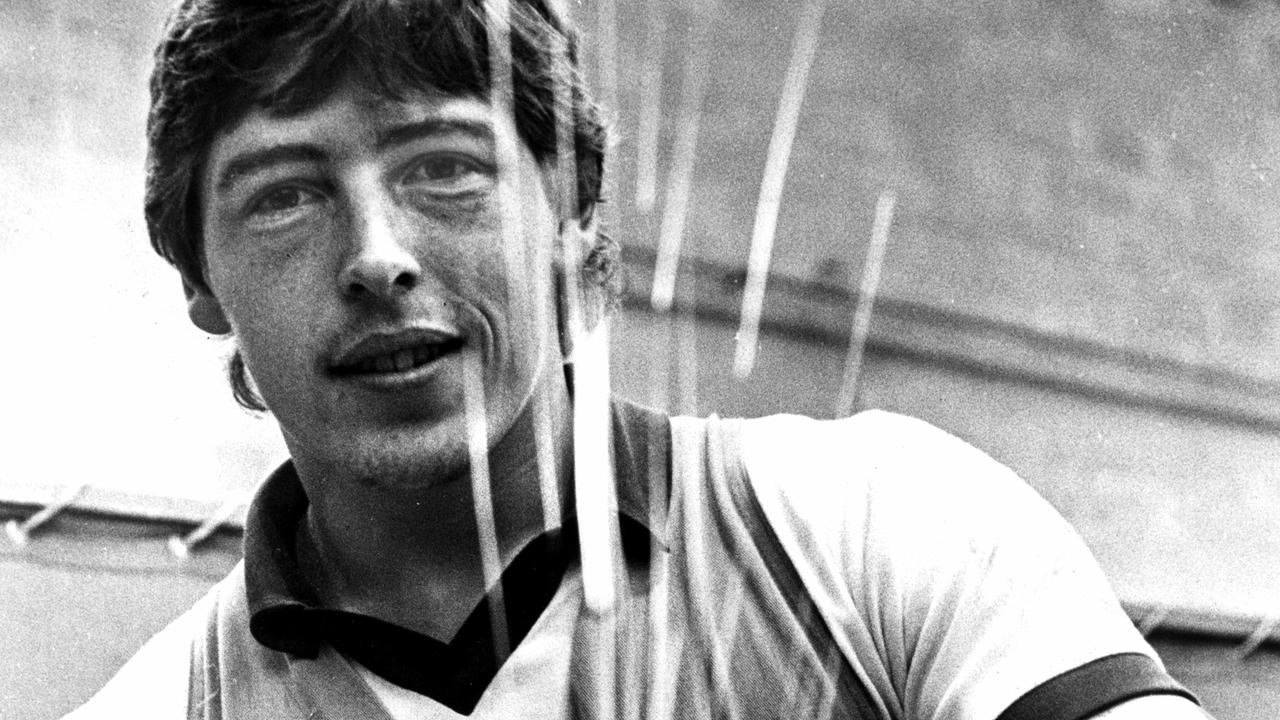
MW: What was your coaching philosophy?
MT: Recruit and develop our own people and involve the player group in how you want to play. Let them have ownership of it. I used to encourage them to make decisions out of on the ground.
If you feel like something should happen, a matchup or something, go and do it. If you feel like a stoppage set-up is wrong and they are fleecing us, then change it up.
Don’t wait for the runner to come out. Back yourself and try and make a decision that you think I would want made.
So you’ve got a whole group of players thinking like they are the coach. And they did that probably better than any other team. They did take ownership of the squad.
Kevin talks about attack and playing good football. Pretty football and entertaining football but my God he was a defensive coach, too. He was both. We used to score off the back off pressure and I took that game plan to Geelong. No question.
And I had some people who actually thought they were the best person to have the ball in their hands to kick the winning goal. I had a lot of them.
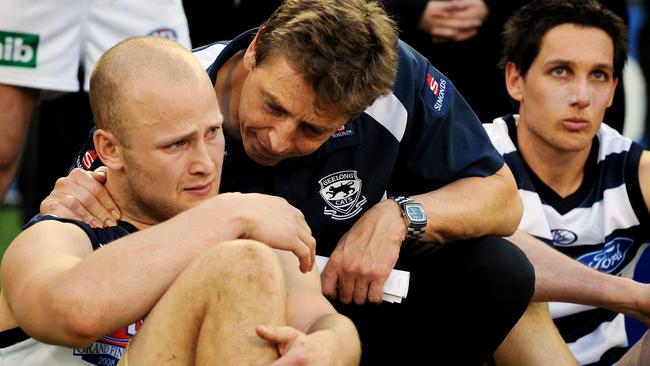
MW: How satisfying is it to look back on what you achieved at Geelong?
MT: It’s a good thing. It’s up there with being a father and running a business. We grew the business slowly and we did that with the footy club too.
MW: Your eyes light up when you talk about Geelong, but now you say you don’t want to watch footy anymore.
MT: I haven’t got a problem with footy. It’s just not in my life at the moment because I’m doing other things and I’m finding them pretty good to do.
I actually feel like I’m learning a bit about the world. I’ve got a thing about health.
MW: Would you ever get back into the AFL?
MT: No. I just know myself. It wouldn’t matter who I was coaching, I would just want to win and do a good job and keep obsessing about things.
MW: The AFL has become a machine. When did you realise what a beast it had become?
MT: At clubland you really only deal with the AFL from your own club’s perspective - not from a holistic perspective that often.
But I think the AFL, they actually didn’t really care about individual clubs that much and that’s exactly what their purpose was.
To service the clubs, to put games on and administer the game.
But they had their business plans and their long-term goals and short-term goals. I thought when they put two new teams into the competition (Gold Coast and GWS) in such short succession it was the wrong thing to do.
It put such a drain on talent. There was always going to be another team in Sydney and in Queensland but to do it so close together was an enormous strain and too hard on some of the clubs that were already struggling and had been down the bottom of the ladder and missed the opportunity to get those picks you were probably deserving. That was a big hit on a lot of clubs.
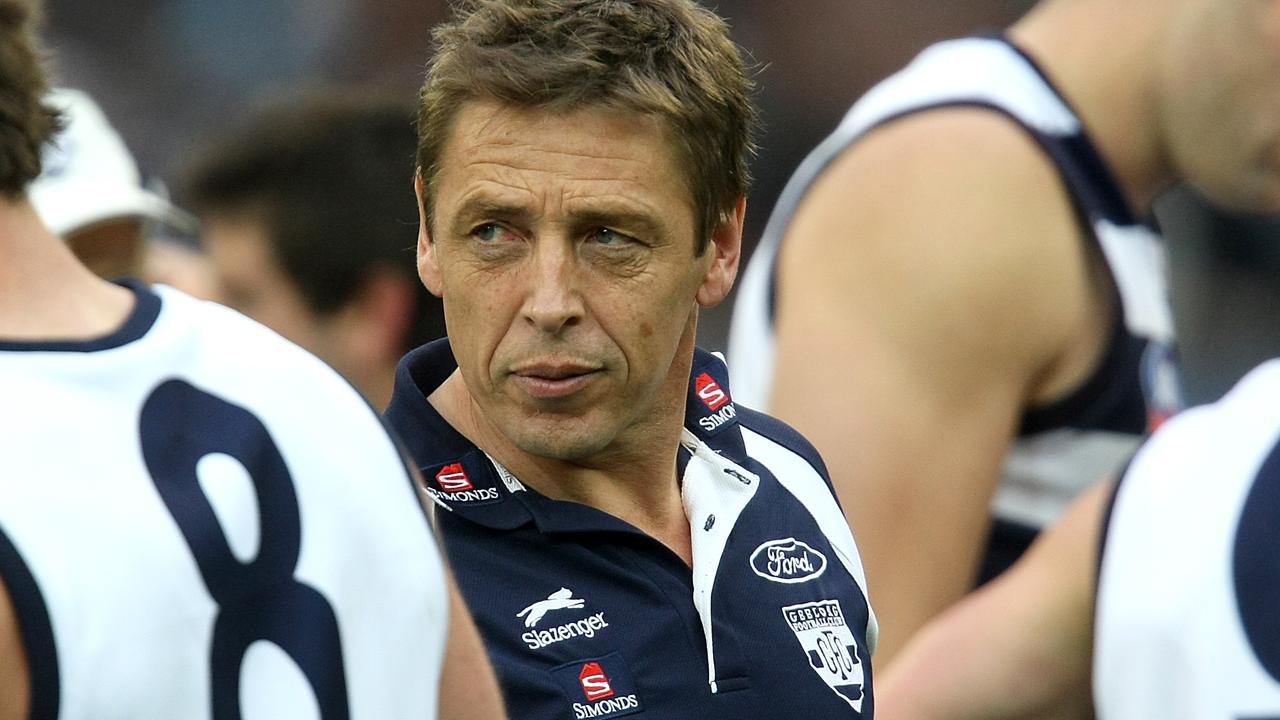
MW: The AFL’s priorities became looking after themselves - not the clubs?
MT: You’d never see them at club level.
You’d maybe see them once a year. If I was running the competition, I would actually try to be out at clubs and checking up that things were on track instead of coming up in a years’ time and the club has lost $5 million or they’ve got no players or the recruiting and list management is up the shit.
They can see so much from other clubs that they can actually give some advice if a club looks like it’s going to hit trouble.
MW: What would you say to a young player today about planning for life after footy?
MT: They get taken out of the game at different times. We had this policy at Geelong that everyone should be either working or doing some form of study so that if ever footy didn’t work out for them they hadn’t given up everything and they had nothing when they were 22 or 23.
That was good in theory but in practice, players actually get drafted and all they want to do is play football.
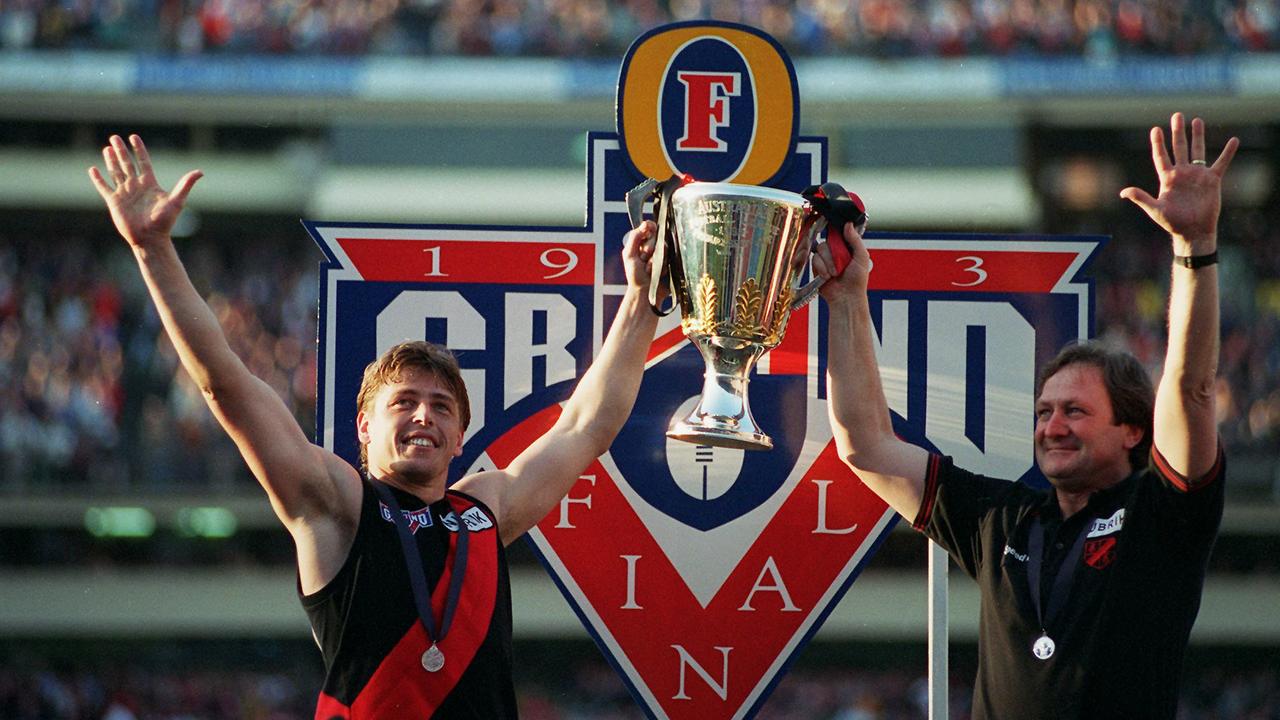
A lot of them started courses and filled out the forms … to show the club that ‘yeah. I’m studying’ but they couldn’t give a stuff about studying. So in the end we didn’t care so much that they did something in their early years, but if they got to 22 and they were playing footy … and let’s say they weren’t certain of a career, then we’d put some pressure on them to say, ‘Listen, you know, football may not be around in two years or three years because you’re not a certainty yet, or you’re in and out of the side or you have a lot of injuries or you might just be playings twos, you’ve got to start thinking about something’.
Then you’ve got the group that are playing, like (Paul Chapman) Chappy, who did a different course every year for four years and I don’t think he finished one of them.
He was earning enough money and he was going to play footy for a while, so it was hard for us to get him to do something, but because he wouldn’t go and finish a course we actually brought the course to him.
We brought the carpenter course and ran it at the club (laughs). So after training he’d have to go straight in there. So he finished it and now he’s a handy man and he’s got his business going.
The moral of the story is that you’ve got to pick your players. Gary Ablett Jr was always going to play. It didn’t really matter … he’s Gazza.
People who are 27 and if they hadn’t had a job or hadn’t got a career, we made sure that they got to know some people around the club and that they started investing time in their post-football life.
People like Dasher - when I left he still hadn’t done anything, you know. Ricco was the same. When he got to the end he really struggled.
But then there are people like Charlie Gardiner, who got out from St Kilda at 24 or something and went and became a lawyer. He studied law the whole time he was at Geelong.
At some point we did force people to go and do something, yeah.

Add your comment to this story
To join the conversation, please log in. Don't have an account? Register
Join the conversation, you are commenting as Logout